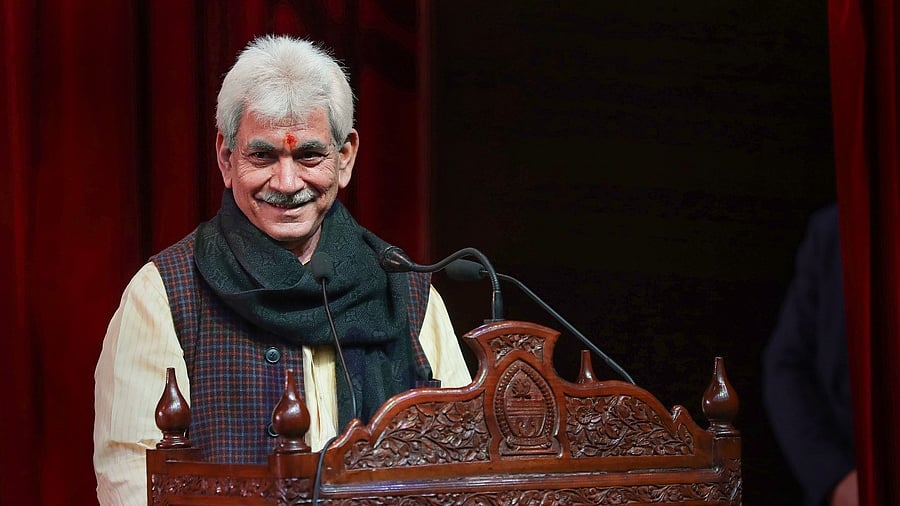
J&K L-G Manoj Sinha
Credit: PTI Photo
The ban on 25 books by the Jammu and Kashmir Home Department, on the orders of Lieutenant Governor Manoj Sinha, goes against the administration’s claims about the situation in the Union Territory and exposes its insecurities. The banned books include The Kashmir Dispute by AG Noorani, Kashmir in Conflict: India, Pakistan and the Unending War by Victoria Schofield, Azadi by Arundhati Roy, and Contested Lands by Sumantra Bose. The notification says that the books propagate a “false narrative and secessionism”, increase radicalisation and recruitment into terrorism, and “would deeply impact the psyche of youth by promoting a culture of grievance, victimhood and terrorist heroism”. The messaging contradicts the government’s claims, especially after the scrapping of Article 370 in 2019, that normalcy has returned to Kashmir and that there is no disaffection or discontent. There are also reports about the decline in militant recruitment.
Many of the banned books are about Kashmir’s history, State overreach, and people’s experience with the government, and offer critical perspectives and narratives that the government may not agree with. But a responsible administration should not ban ideas it does not approve of. Some of these books are products of many years of research, and they have been in circulation for a long time. Till now, there has been no criticism that they have radicalised people or incited them against the State. Raids have been held across the Union Territory to seize the books. As it happens when books are banned, they will go underground and will be read more.
Banning books, plays, and films is a familiar tactic employed by authoritarian governments to counter inconvenient narratives. When democratic governments do that, it only exposes their authoritarian tendencies or their wish to please some sections of society. A ban is a violation of the right to free speech and expression, and the right to know. The objectives cited by the Kashmir administration are unconvincing. The popular government in the Union Territory has not supported the administration’s actions. Chief Minister Omar Abdullah has distanced himself from the ban. The question to ask is – aren’t these books harmful in other parts of the country? Bans on works of art and literature have never addressed the issues they discuss. If the books offer “wrong” narratives, the administration should counter them with its narratives and actions, not with a ban. There should be free play and exchange of ideas. If the administration thought the ban would curb disaffection, it is wrong. Unilateral actions and excessive control can only intensify it.
